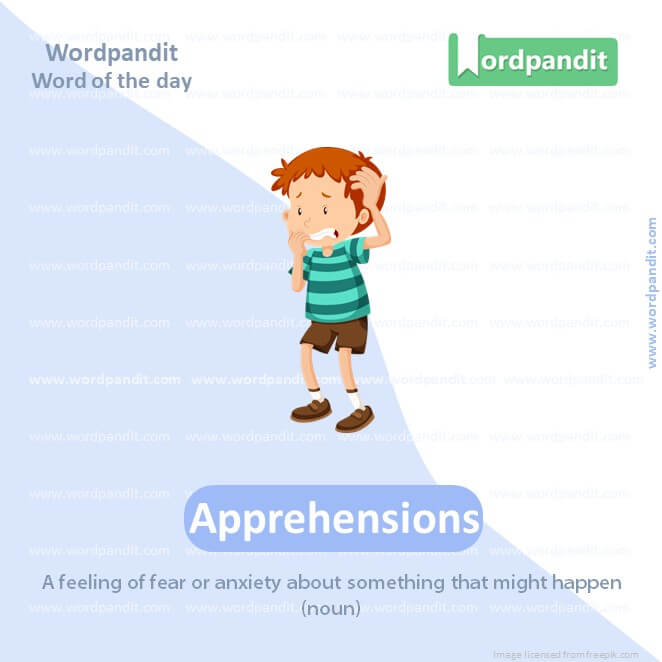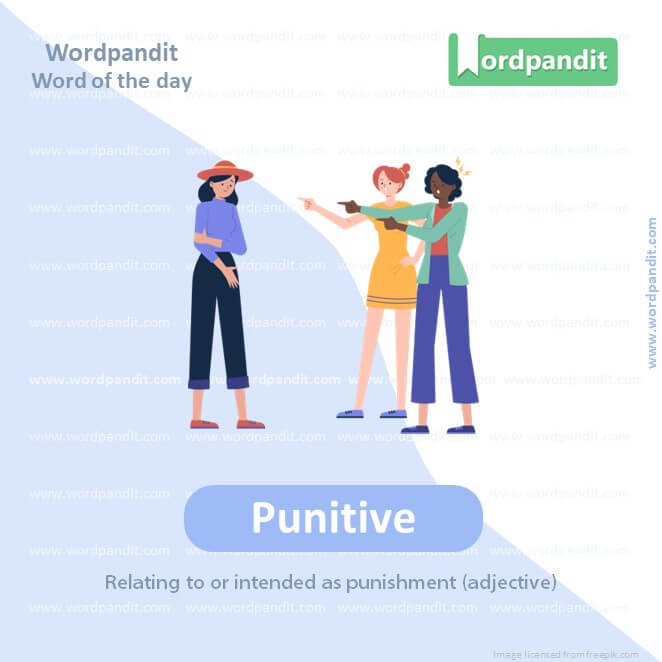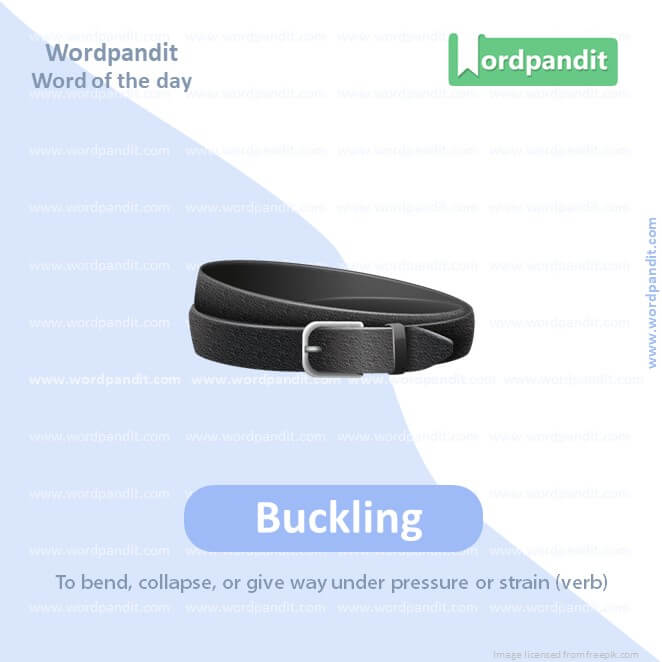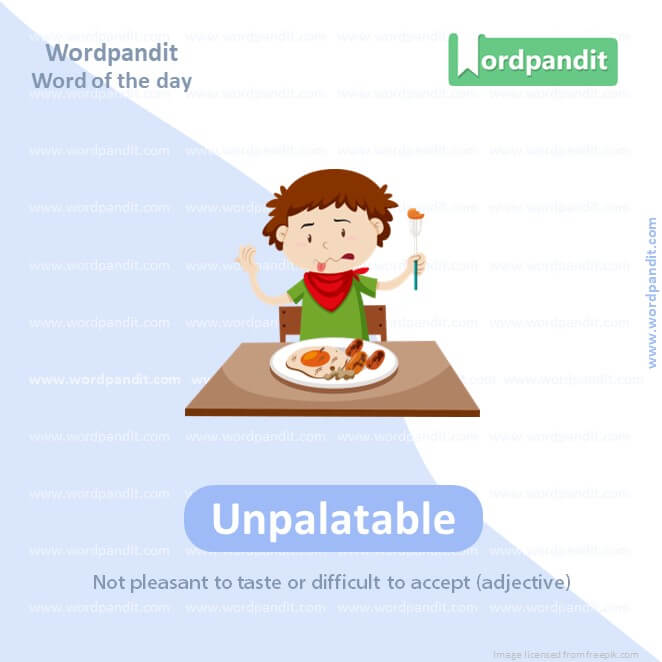Daily Vocabulary Words: List of Daily Used Words in Leading International Newspapers
Hi there. Welcome to this special section @ Wordpandit.
Our endeavour here is very simple: to highlight important daily vocabulary words, which you would come across in leading newspapers in the country. We have included the following newspapers in our selection:
• The New York Times
• The Washington Post
• Scientific American
• BBC
• The Guardian
• Psychology Today
• Wall Street Journal
• The Economist
We are putting in extensive work for developing your vocabulary. All you have got to do is be regular with this section and check out this post on a daily basis. This is your repository of words that are commonly used and essentially, we are posting a list of daily used words. Hence, this has significant practical application as it teaches you words that are used commonly in leading publications mentioned above.
Visit the website daily to learn words from leading international newspapers.

WORD-1: Apprehensions
CONTEXT: There was a 90 percent increase in migrant apprehensions along the southern border compared to the year before.
SOURCE: New York Times
EXPLANATORY PARAGRAPH: Imagine you feel nervous about something that might happen, like being scared of the dark because you think there might be monsters. That feeling of worry or fear about what could happen is called “apprehension.”
MEANING: A feeling of fear or anxiety about something that might happen (noun).
PRONUNCIATION: ap-ruh-HEN-shuns
SYNONYMS: Anxiety, Fear, Worry, Nervousness, Dread
USAGE EXAMPLES:
1. His apprehensions about the first day of school made him feel uneasy.
2. The dark clouds caused apprehensions about a coming storm.
3. She had apprehensions about riding a bike for the first time.
4. The news report increased their apprehensions about safety.
WORD-2: Expulsions
CONTEXT: When I served on the National Security Council, I examined whether expulsions played a role in reducing smuggling activity.
SOURCE: New York Times
EXPLANATORY PARAGRAPH: Imagine if someone is being really naughty at school and they have to leave and not come back. That’s like being given a “time-out,” but it means they can’t return. This is called “expulsion.”
MEANING: The action of forcing someone to leave a place, especially a school or organization (noun).
PRONUNCIATION: ik-SPUL-shuns
SYNONYMS: Dismissal, Ejection, Ousting, Banishment, Removal
USAGE EXAMPLES:
1. The student faced expulsion for breaking school rules.
2. Expulsions from the club were rare and serious.
3. He appealed against his expulsion from the university.
4. The policy led to several expulsions for misconduct.
WORD-3: Stemming
CONTEXT: Mr. Biden announced a series of measures aimed at stemming unauthorized crossings, including new legal pathways for migrants from Cuba, Haiti, and Nicaragua.
SOURCE: New York Times
EXPLANATORY PARAGRAPH: Think of how a plant stops water from leaking out by using its stem. In a similar way, when we stop something bad from spreading or getting worse, it’s like using a stem. That’s called “stemming.”
MEANING: To stop or hold back something from spreading or increasing (verb).
PRONUNCIATION: STEM-ing
SYNONYMS: Halting, Stopping, Preventing, Restraining, Curtailing
USAGE EXAMPLES:
1. Efforts were made for stemming the spread of the disease.
2. Stemming the flow of water was crucial to prevent flooding.
3. They discussed ways of stemming the loss of profits.
4. New 
WORD-4: Punitive
CONTEXT: Democrats may think that it is worth embracing punitive immigration policies for the hope of improving Mr. Biden’s polling numbers.
SOURCE: New York Times
EXPLANATORY PARAGRAPH: When you do something wrong and get a punishment, like a time-out, that’s because you need to learn it’s not okay to do that. “Punitive” is like when you get a punishment to teach you a lesson.
MEANING: Relating to or intended as punishment (adjective).
PRONUNCIATION: PYOO-nih-tiv
SYNONYMS: Penalizing, Disciplinary, Corrective, Retributive, Punishing
USAGE EXAMPLES:
1. The judge imposed punitive fines for the offense.
2. Punitive measures were taken against the rule breakers.
3. The law is more punitive than rehabilitative.
4. They called for punitive action against the company.

WORD-5: Deteriorating
CONTEXT: Deteriorating conditions in Latin America and the Caribbean guarantee that more migrants will be forced to seek refuge in the United States.
SOURCE: New York Times
EXPLANATORY PARAGRAPH: Imagine your favorite toy breaking or getting old and not working as well as it used to. This getting worse or falling apart is like what “deteriorating” means.
MEANING: Becoming progressively worse (verb).
PRONUNCIATION: dih-TEER-ee-uh-ray-ting
SYNONYMS: Worsening, Declining, Degenerating, Decaying, Breaking Down
USAGE EXAMPLES:
1. The weather is deteriorating, with more rain coming.
2. Her health started deteriorating rapidly.
3. The building was deteriorating due to neglect.
4. Economic conditions are deteriorating in the region.

WORD-6: Buckling
CONTEXT: They make their way to the border and develop a federal response to help cities buckling under the strain of absorbing tens of thousands of migrants.
SOURCE: New York Times
EXPLANATORY PARAGRAPH: Think about a thin piece of plastic bending or collapsing when you press on it. That’s what “buckling” is like – when something gives way under pressure or weight.
MEANING: To bend, collapse, or give way under pressure or strain (verb).
PRONUNCIATION: BUK-ling
SYNONYMS: Bending, Warping, Collapsing, Yielding, Caving In
USAGE EXAMPLES:
1. The bridge started buckling under the heavy load.
2. He was buckling under the stress of work.
3. The shelf buckled with the weight of the books.
4. The metal beams were buckling in the heat.

WORD-7: Unpalatable
CONTEXT: As unpalatable as a second Trump term would be, many pundits who tackle this question have ignored a striking fact.
SOURCE: New York Times
EXPLANATORY PARAGRAPH: When you taste something really yucky, like a vegetable you don’t like, that’s “unpalatable.” It means something tastes bad or is unpleasant.
MEANING: Not pleasant to taste or difficult to accept (adjective).
PRONUNCIATION: un-PAL-uh-tuh-bul
SYNONYMS: Distasteful, Unpleasant, Unappetizing, Disagreeable, Undesirable
USAGE EXAMPLES:
1. The medicine was unpalatable but necessary.
2. He found the truth to be unpalatable.
3. The food was bland and unpalatable.
4. They were faced with an unpalatable choice.
WORD-8: Unpardonable
CONTEXT: His toadying to dictators and shunning of American allies and his unpardonable effort to steal an election — should more than offset his economic record.
SOURCE: New York Times
EXPLANATORY PARAGRAPH: If you do something really bad, like breaking a friend’s toy on purpose, and it’s so bad that saying sorry might not fix it, that’s “unpardonable.” It means something is too bad to be forgiven.
MEANING: Not able to be forgiven or excused (adjective).
PRONUNCIATION: un-PAR-dun-uh-bul
SYNONYMS: Unforgivable, Inexcusable, Indefensible, Unjustifiable, Irremissible
USAGE EXAMPLES:
1. His behavior was considered unpardonable.
2. It was an unpardonable mistake.
3. The betrayal was seen as unpardonable by his friends.
4. Such carelessness is unpardonable in such a critical job.
WORD-9: Endorsement
CONTEXT: The old saw that Mussolini got the trains to run on time should not be understood as an endorsement.
SOURCE: New York Times
EXPLANATORY PARAGRAPH: Think about when someone you like a lot, like your mom or dad, says you did a great job. That’s like giving you a “thumbs up” or saying they support you. This is what “endorsement” is – showing support or approval.
MEANING: An act of giving one’s public approval or support to someone or something (noun).
PRONUNCIATION: en-DORSE-ment
SYNONYMS: Support, Approval, Backing, Ratification, Sanction
USAGE EXAMPLES:
1. The product received an endorsement from a famous athlete.
2. His project gained the endorsement of the committee.
3. The policy won widespread endorsement.
4. She received the political party’s endorsement for her candidacy.
WORD-10: Prosperity
CONTEXT: This shows that jobs and output, while very important, are not the only economic indicators that matter. Inflation matters, too, because high inflation taxes away prosperity.
SOURCE: New York Times
EXPLANATORY PARAGRAPH: Imagine everyone in your town being happy, having nice houses, plenty of food, and good jobs. This means everyone is doing well and having what they need. This is called “prosperity,” when people or places are successful and have a lot of good things.
MEANING: The state of being successful and thriving, especially in financial terms (noun).
PRONUNCIATION: prahs-PER-ih-tee
SYNONYMS: Wealth, Success, Affluence, Richness, Abundance
USAGE EXAMPLES:
1. The country enjoyed a period of prosperity.
2. Economic reforms led to increased prosperity.
3. They wished her prosperity in her new business.
4. The town’s prosperity was evident in its new buildings and parks.
Vocabulary Exercises
In the language learning fitness regime, ‘vocabulary exercises’ are vital workouts that flex cognitive muscles. These exercises help reinforce new vocabulary, enhance memory, and promote active application. However, to reap the full benefits of ‘vocabulary exercises’, it’s crucial to tackle them with the right strategy and mindset.
To begin with, when approaching ‘vocabulary exercises’, it’s important to view them as opportunities to explore words’ usage. Completing these exercises isn’t simply about ticking off correct answers; it’s about deepening the understanding of the words in various contexts which aids in their active usage.
Leveraging technology can greatly enhance the efficiency of ‘vocabulary exercises’. Digital apps often provide a wide range of ‘vocabulary exercises’ that range from fill-in-the-blank exercises to match-the-column tasks. These digital platforms offer instant feedback and keep you engaged while turning learning into an interactive experience.
Incorporating ‘vocabulary exercises’ in your daily learning routine helps consolidate your vocabulary knowledge. Set aside specific time slots every day to commit to these exercises. Regular revisions steps up retention and keep the learning curve ascending.
Personalizing ‘vocabulary exercises’ also proves beneficial. This could involve creating your own sentences using the learnt vocabulary or drawing visuals that associate with each word. These personalized exercises stimulate more profound learning and enhance the recall ability.
To conclude, ‘vocabulary exercises’ are essential tools in your language learning toolkit. They provide a platform for active learning, promote better recall, and, when paired with technological tools, make learning more engaging and effective. Furthermore, incorporating these exercises into your daily routine and personalizing them heightens their impact. Remember, ‘vocabulary exercises’ are not merely tasks, they are stepping stones guiding you towards your language mastery goals.











